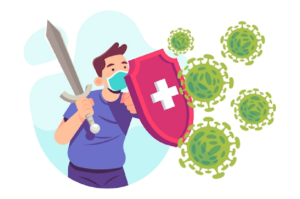Benefits of Partial Hospitalization Programs
3 min read
Partial Hospitalization Programs (PHPs) provide structured outpatient mental health care to individuals needing actively managed treatment who require a higher level of care than traditional outpatient therapy but who do not need 24-hour supervision in an inpatient setup. PHPs provide diverse interventions for patients who continue to live in homes or a clinical environment. This option allows clients to retain or reset their surrounding environment, including their families or friends.
Partial hospitalization programs (PHPs) have the edge of giving patients structured therapy and flexibility of movement, which makes them an excellent option for addressing mental health concerns. Here is an exploration of the benefits they provide:
1. Intensive treatment
PHPs are where patients get supportive, therapeutic services without having to check into inpatient care. Thus, treatment allows patients who need more support than psychiatric outpatient therapies but do not require around-the-clock hospital monitoring.
2. Continuity of care
PHPs connect to inpatient and outpatient services to facilitate the process of going outpatient for these individuals as they step down from inpatient treatment or try to avoid being hospitalized. A further contribution to success is providing constant support that facilitates development and recovery.
3. Flexibility
A striking difference for PHPs is that the patients can return to their homes at night, which gives them a great opportunity to remain connected with their support systems. This flexibility can improve the individual’s sense of autonomy and reduce possible disruption to work or family matters. Hence, it is a huge advantage of a flexible working mode.
4. Structured environment
While PHP participants return home at the end of the day, they spend a significant portion of their time in a structured therapeutic environment. It offers people a relatively stable and repetitive way of life. This feature is sometimes the thing that heals.
5. Comprehensive treatment
Php treatment programs provide clients with a collection of treatment modalities such as individualized therapy, group therapy, psychopharmacology, and cognitive behavioral therapy. So, this multifaceted approach deals with numerous aspects of mental health and provides many kinds of coping abilities and mechanisms to the people looked after.
6. Peer support
Participants of the group therapy at the PHP (partial hospitalization program) meetings have a chance to open up to people encountering similar challenges. Having this kind of peer support will floor the way people feel like they belong and also eliminate the feeling of being isolated, which is mostly the case for people experiencing mental health problems.
7. Real-world application
PHPs often include experiential projects and activities that make participants practice their resilience tools in the environment in which they apply them. This practically defined concept aids individuals in downscaling the knowledge they get in sessions to their daily lives, making it more applicable and lasting.
8. Holistic approach
Besides, PHP approaches include therapeutic methods like art therapy, mindfulness techniques, physical fitness, and nutrition education programs. The two integrated approaches engage the patient on several levels, such as mental and spiritual healing, strengthening a person, and restoring the well-being generally associated with health.
9. Individualized care
Continuous assessment and development of individualized plans assist in forming recovery path goals and achieving sobriety and rehabilitation. Implementing a tailored approach to service delivery with particular emphasis on making concurrent notions useful and effective results in the highest probability of outcomes.
10. Relapse prevention
Through offering ongoing supervision and teaching the most efficient coping techniques, PHPs instill skills into the clients, whose only purpose is to stop them from returning to their conditions of mental instability. Therefore, considering relapse prevention is highly important in achieving enduring recovery.
11. Family involvement
During PHP treatment, such members of the family are often involved in family therapy sessions, educational programs, and support groups where they receive the necessary help and support. That will boost family ties, increase communication lines, and construct a stress-free and cozy home.
12. Cost-effectiveness
In contrast to inpatient care, PHP services are more likely to be financially justified even though they offer the same polypharmacy care. That is accomplished due to the decrease in the number of hospitalization cases and the provision of patients with a lower level of supervision, which makes it possible for people to get the treatment needed without excessive expenses.







